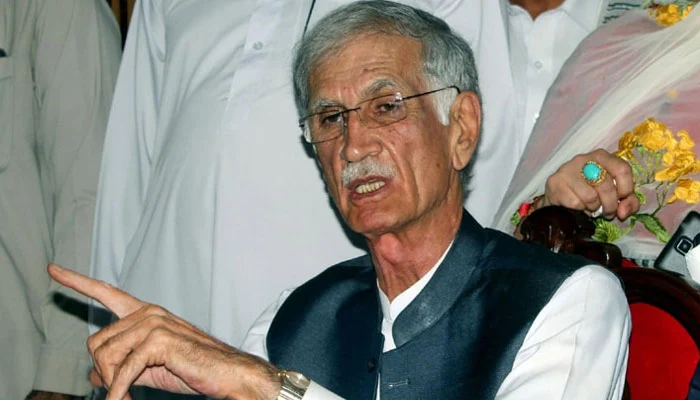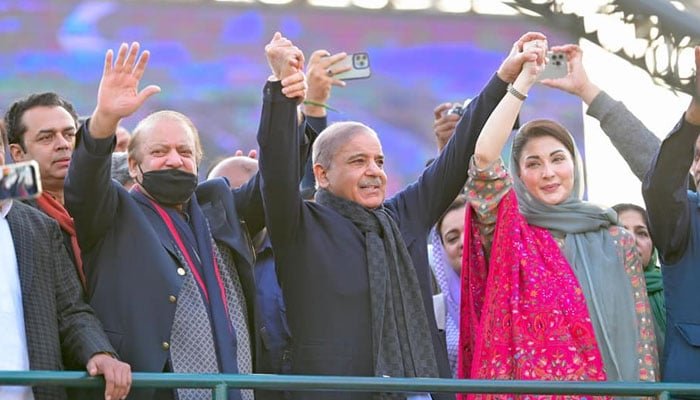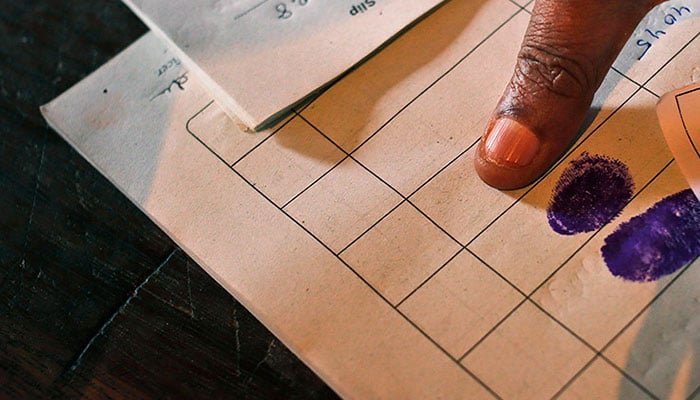In a recent parliamentary session, the Chairman of Pakistan Tehreek-e-Insaf Parliamentarians (PTI-P), Pervez Khattak, made startling allegations, declaring former Federal Minister Murad Saeed and the entire Tehreek-e-Insaf party as criminals. During a later address, Khattak reiterated his stance, asserting that, in his view, Murad Saeed and PTI are guilty of criminal activities in Pakistan.
Khattak, a prominent figure within the PTI-P, expressed disappointment, stating that despite being in power, there has been no substantial progress towards building a new Pakistan or implementing reforms in the name of Islam. He emphasized his belief that neither a new Pakistan nor any significant Islamic transformation has taken place under the leadership of Murad Saeed and the PTI.
Furthermore, Khattak articulated the party’s desire for internal stability, peace, and relief from external debts. He underscored the urgency of addressing the country’s economic challenges, highlighting that Pakistan has been burdened with loans for the past 30 years, necessitating a wake-up call for the nation.
The PTI-P Chairman shed light on key initiatives, mentioning the introduction of health cards, the Peshawar Bus Rapid Transit (BRT) project, and the Motorway projects as notable achievements. These projects, according to Khattak, reflect the party’s commitment to improving healthcare facilities, public transportation, and infrastructure in the country.
Additionally, Khattak asserted that the Chairman of PTI consistently advocated for the idea that people from abroad would come to Pakistan for employment opportunities, promoting the idea of economic prosperity and employment generation within the country.
The allegations and criticisms levied by Pervez Khattak against Murad Saeed and the PTI introduce a dynamic element to the political landscape. The public exchange of such strong remarks among members of the same party suggests underlying tensions or differences in opinion within the PTI-P.
As the political narrative unfolds, it remains to be seen how these accusations will impact the internal dynamics of PTI-P and the broader perception of the party. The response from Murad Saeed and other PTI leaders, as well as the subsequent actions taken by the party, will likely shape the trajectory of this internal dispute within the PTI-P.
The accusations made by Pervez Khattak against Murad Saeed and the PTI during a parliamentary session add an element of internal discord to the party’s narrative. The fallout from these allegations and the subsequent responses will be closely monitored as the PTI-P navigates through this period of internal scrutiny and political challenges.



